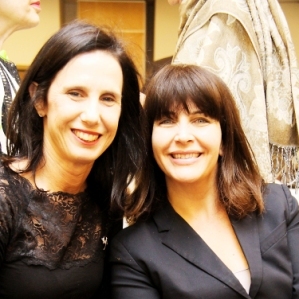
Community

Einat Wilf – razor-sharp master of many trades
BENJI SHULMAN
The visit of Dr Einat Wilf to South Africa recently, organised by WIZO and the South African Zionist Federation, presented a version of the word that doesn’t often get a hearing in today’s soundbite saturated media environment.
Wilf is an Ivy League-educated scholar, self-identifying atheist, and feminist, who is a passionate supporter of LGBT rights and believes in the legalising of marijuana. She is also a Zionist, a strong advocate of the two-state solution and a sharp critic of Prime Minister Benjamin Netanyahu.
Wilf served as intelligence office in the Israel Defence Forces, is a former adviser to President Shimon Peres and is a member of the Knesset Foreign Affairs and Defence Committee.
Since finishing her term in politics, Wilf has used her unusual set of talents and perspectives to act as a sort of “roaming ambassador”, giving Israel’s perspective to eager audiences around the world.
She is especially popular among “progressive” Jewish groups because of her political positioning. Utilising her razor-sharp insights, she has delved deeply into the key issues facing Israel and the Jewish people, writing about everything from electoral reform to the Israeli education system.
Her South Africa tour also included interviews on local media as well as talks before a variety of audiences, both Jewish, and the wider community, and her balanced but critical style was well received.
After a series of talks in Johannesburg last week to various audiences, she headed to Cape Town as keynote speaker at the opening night of WIZO South Africa’s 35th Triennial Conference, where she explored how Zionism and feminism have both become taboo concepts.
Throughout her engagements, she focused attention on the global campaign to de-legitimise the State of Israel. She noted that South Africa had become a sort of “ground zero” for the global boycott campaign because the country successfully transitioned from apartheid to democracy. The country serves as a key hub where ideas about the conflict are being formed and spread.
By targeting problematic ideas such as “labelling” of goods while they are small and still growing in South Africa, she argued that they could be significantly blunted before they become a bigger more expensive problem when they inevitably arrive in Europe and America.
She says she is one of the few from the Israeli policy establishment who seems to grasp the importance of the “apartheid analogy” and the damage that it can do to Israel’s interest and world Jewry as a whole.
At one presentation on Syria and Iraq, a member of a major national think-tank called her talk “dazzling”.
She was also asked what Israel could learn from the South African experience. Leaning on her knowledge of Ireland, she said that in other conflicts the two sides had always reached “symmetry” – the state where no one power can impose its will on the other – a situation which then leads to negotiation.
The Israeli-Palestinian case she argued, is different; the Palestinians still believe that Israel can be defeated and will keep fighting as long as they believe this. Therefore, she argued, only a very powerful Israel can convince them to drop that narrative and move toward peace.




